In uncertain times like these, the single thing that every flagship ballet company needs is a convincing iteration of a 19th-century blockbuster. New works are all very well and necessary, but they don’t have the pulling power of Swan Lake, or the staying power. The Royal Ballet’s previous production served the company well for three decades, more than justifying the original investment.
Happily for the ballet-going public (which includes in large part the foreign visitors that Jeremy Hunt is suddenly so keen to impress), the Royal's punt on a 30-year-old choreographer, Liam Scarlett, in cahoots with a veteran designer, John MacFarlane, resulted in a production with the potential to outlive most of its current audience. Six years on from its first outing, the Scarlett/MacFarlane Swan Lake – grand, sumptuous, rooted in tradition but not limited by it – is proving to be solid gold.
Scale and mood are its boldest features. MacFarlane’s painterly designs are monumental, whether that be vast, darkly monochrome sky-and-waterscapes for the lakeside, or the vast, thickly gilded palace rooms for the Prince’s fateful birthday party. With furniture like that, we don’t need telling that Prince Siegfried finds his filial obligations oppressive. David Finn’s lighting must take due credit too. The impression of barely-moonlit darkness pervades Acts II and IV while every important detail is brought into view, right down to the stiff-as-a-toothbrush layering of the swans’ tutus (pictured below). The moment when the flock of 26 first appear, entering at a prancing pace in a long coiling line, is every bit as special as it should be.
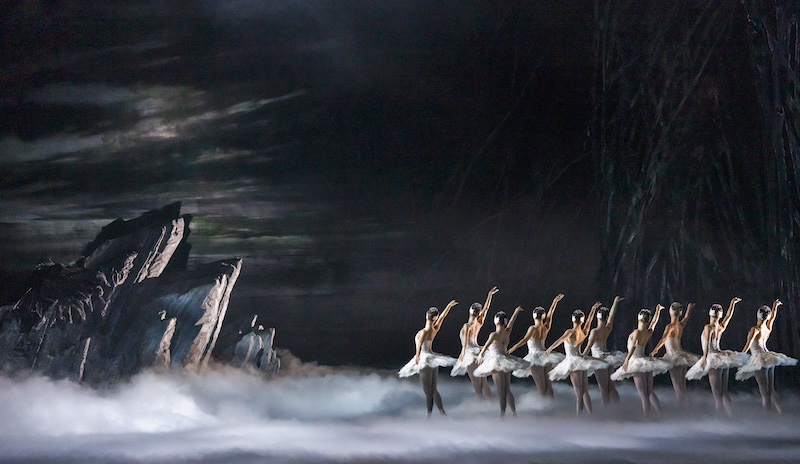 While streamlining the narrative, the choregrapher also makes a few useful additions – a brief prequel showing how Odette first fell prey to Von Rothbart (the ultimate coercive controller) and an active role for Benno, the Prince’s friend (a cheerfully subversive Luca Acri on opening night) whose laddishness makes Siegfried more human. More significant, though, is the dual-casting of Odile’s captor (still a faintly ludicrous flapping vulture-like thing) with the Queen’s advisor, a gimlet-eyed Rasputin who clearly wishes Siefried out of the way. As the latter, Gary Avis has perfected a faint, malevolent smirk.
While streamlining the narrative, the choregrapher also makes a few useful additions – a brief prequel showing how Odette first fell prey to Von Rothbart (the ultimate coercive controller) and an active role for Benno, the Prince’s friend (a cheerfully subversive Luca Acri on opening night) whose laddishness makes Siegfried more human. More significant, though, is the dual-casting of Odile’s captor (still a faintly ludicrous flapping vulture-like thing) with the Queen’s advisor, a gimlet-eyed Rasputin who clearly wishes Siefried out of the way. As the latter, Gary Avis has perfected a faint, malevolent smirk.
Within the framework of every new production of Swan Lake (and few audience members will be aware how little of the original 1877 choreography survives) there is a certain amount of dramatic leeway for the two leading dancers. Marianela Nuñez and Vadim Muntagirov have long experience both as stage partners and with this ballet, which might make on think they could do it in their sleep. Not a bit of it. These two seem to review their interpretation afresh on each revival. Nunez’ Swan Queen, on opening night, was no timid, trembling thing. She was angry, and fierce with it. You will not shoot me with your crossbow, nor will you harm a feather of my companions!, her movements say on first meeting the Prince.
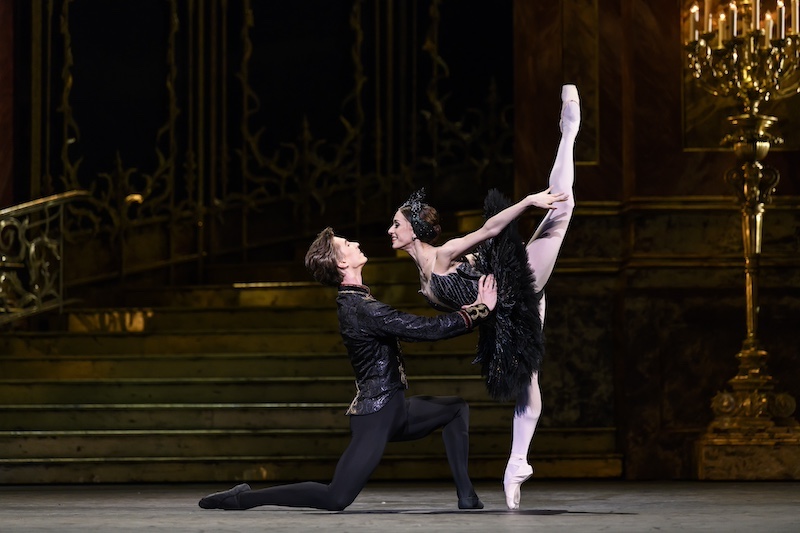 Technically, this pair (pictured above) are so well matched that the rigour of the steps fades into background. Dramatic intention foregrounds everything. So when Nuñez chose the slowest of slow tempi for the first pas de deux, it was Odette's growing tenderness and trust that beamed to the back of the balcony, not the fiendish achievement of balancing in adage. And when she let herself be rocked gently back and forth in Siegfried's arms, we swooned along with her. A sold-out opera house holding its communal breath is a sound you don’t forget in a hurry.
Technically, this pair (pictured above) are so well matched that the rigour of the steps fades into background. Dramatic intention foregrounds everything. So when Nuñez chose the slowest of slow tempi for the first pas de deux, it was Odette's growing tenderness and trust that beamed to the back of the balcony, not the fiendish achievement of balancing in adage. And when she let herself be rocked gently back and forth in Siegfried's arms, we swooned along with her. A sold-out opera house holding its communal breath is a sound you don’t forget in a hurry.
Koen Kessels, likewise, has conducted this work more times than he would care to count, but he too, is on the opposite of autopilot. The textures of Tchaikovsky’s orchestration have rarely been so delicately drawn – so delicately that I was made aware for the first time of the frequent incursions of triangle (yes, triangle!). The horns’ oom-pah-pahs in the glorious Act I waltz were especially, deliciously, light, in line with the frothing choreography, all swirling bustled skirts and vertical leaps like rows of popping corks. A joy.
Given that casts will change from night to night and this review cannot speak for them all, if one feature of the production were to be singled out for the highest praise it would be the group choreography as dramatic special effect. The 26 white swans in Acts II and IV with their constant swarming and regrouping into immaculate floor patterns. Or the devastating chaos at the palace, when Siegfried realises with horror that he’s been tricked into betraying Odette and the room is suddenly a-flap with mockingly exultant black swans. Other Swan Lakes, as they say, are available (or will be before the year is out), but this one ticks all the boxes.

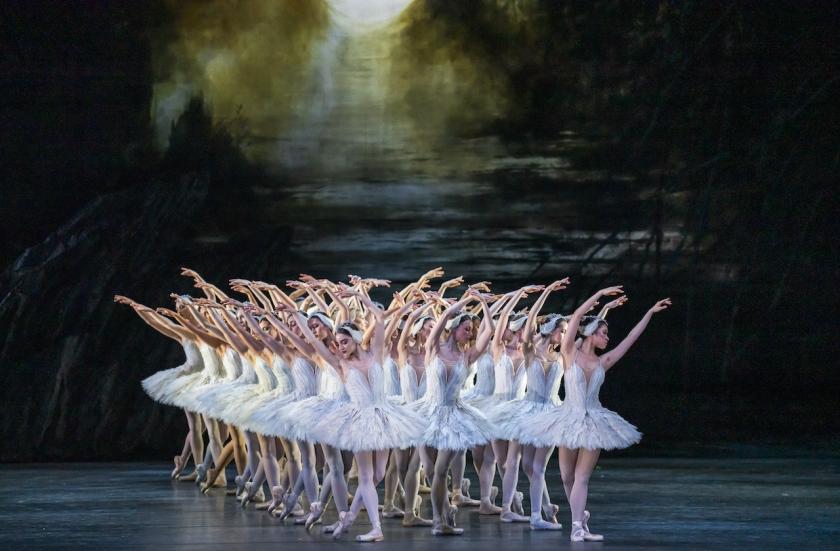


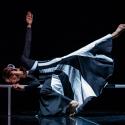
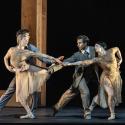
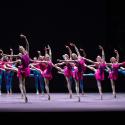
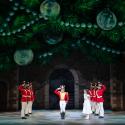
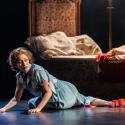


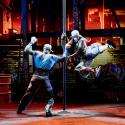


Add comment